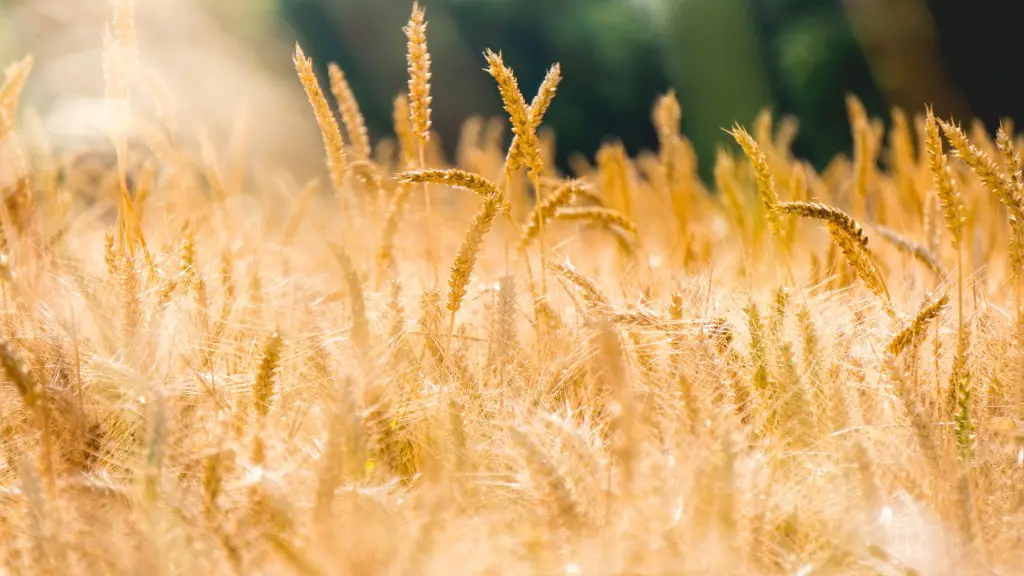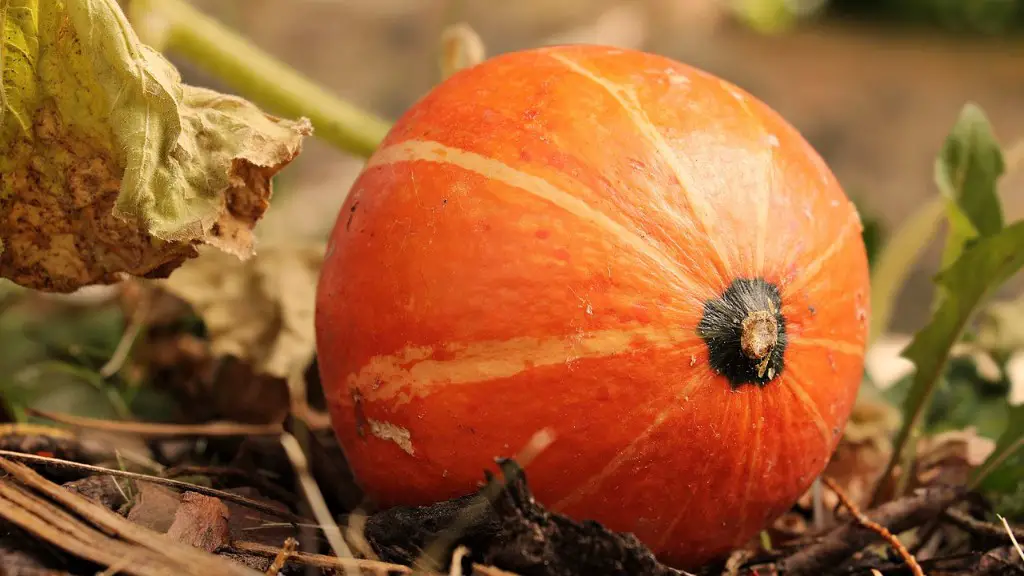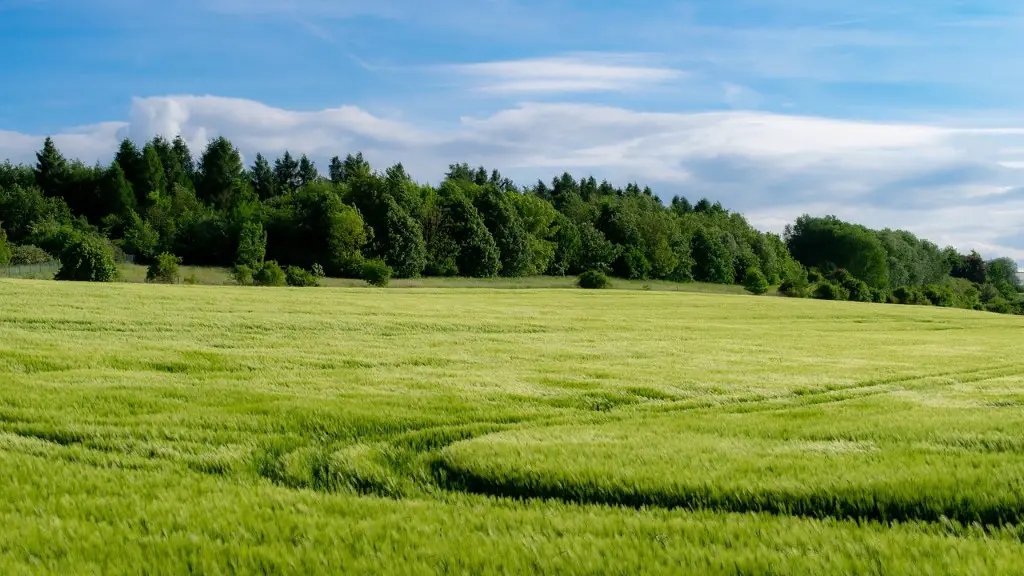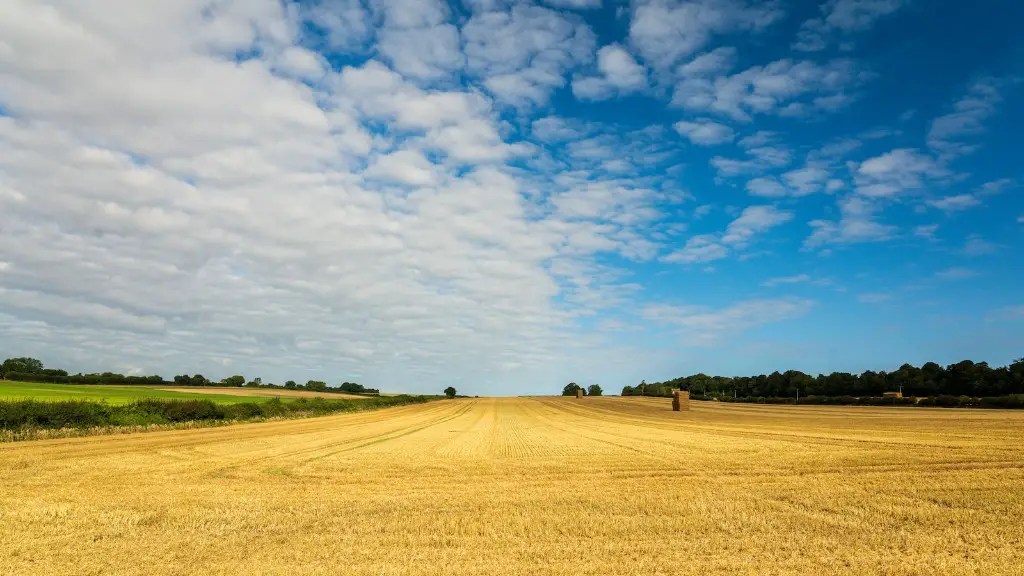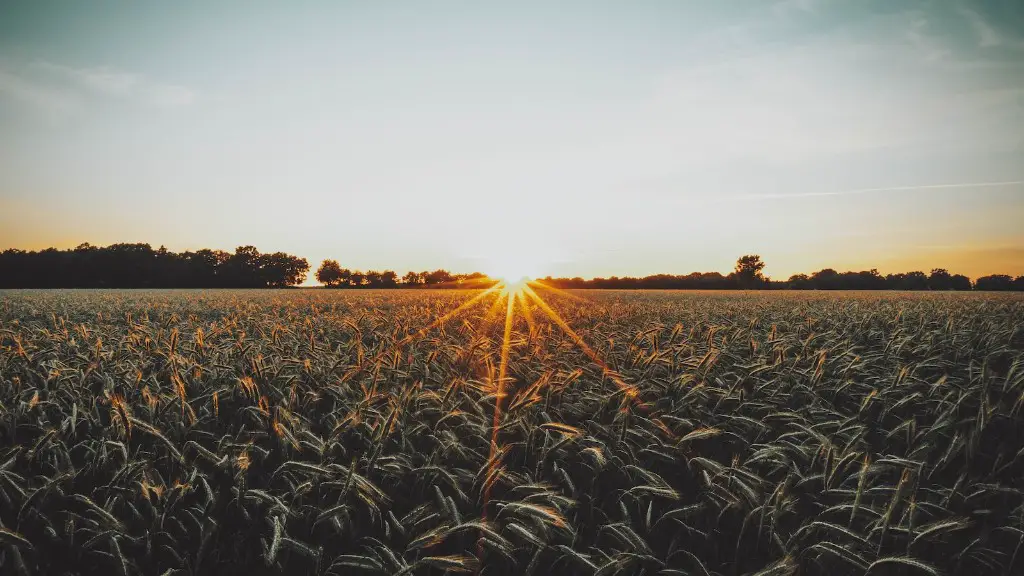agriculture affects the water cycle by affecting the amount of water that is available for evaporation. When there is less water available for evaporation, there is less water available for precipitation. This can lead to a decrease in the amount of water available for plants and animals, and can also lead to drought conditions.
The water cycle is the process by which water circulates through the atmosphere, oceans, and land. Agriculture affects the water cycle by altering the amount of water that is available in different parts of the cycle. For example, irrigation can lead to increased evaporation from the soil, which can increase the amount of water vapor in the atmosphere. This can in turn affect precipitation patterns, and can lead to more precipitation in areas downstream from the agricultural land.
How does agriculture cause water problems?
Poor water quality can affect the quality of food crops and lead to illness in those who consume them. For example, the water may contain germs that cause human disease. Irrigating crops with contaminated water can then lead to contaminated food products which lead to illness when eaten.
Water applied as irrigation allows for crop production in arid regions and supplements soil moisture in humid regions when growing season precipitation is insufficient. Irrigation has enhanced both the productivity and profitability of the agricultural sector. In many cases, it has allowed farmers to produce crops in areas that would otherwise be unsuitable for agriculture. It has also increased the yield of crops in areas where rainfall is insufficient.
What are 3 ways that agricultural land can cause water pollution
Agricultural runoff is a major environmental issue because it can lead to water pollution. Poorly managed animal feeding operations, overgrazing, and overworking the land can all contribute to agricultural runoff. Poorly managed and ineffective application of pesticides, irrigation water, and fertilizer can also contribute to agricultural runoff.
Agricultural wastewater is any water that has been contaminated by contact with agricultural activities or products. Agricultural wastewater can contain a variety of pollutants, including bacteria, viruses, nutrients, pesticides, and other chemicals.
There are a number of ways to manage agricultural wastewater, depending on the type and level of contamination. Treatment options include physical, chemical, and biological processes. Physical processes such as filtration and sedimentation can remove some contaminants, while chemical processes such as flocculation can help to settle out others. Biological processes, such as activated sludge digestion, can be used to remove a variety of pollutants.
In some cases, it may be possible to reuse or recycle agricultural wastewater. For example, treated wastewater can be used for irrigation or to recharge groundwater aquifers. Reusing or recycling agricultural wastewater can help to reduce the overall demand for water and can also help to reduce the pollution of surface water bodies.
What are the effects of agriculture on water quality?
Agricultural practices can have negative impacts on water quality if they are not done properly. This can include Elevating concentrations of nutrients, fecal coliforms, and sediment loads. Increased nutrient loading from animal waste can lead to eutrophication of water bodies, which may eventually damage aquatic ecosystems.
Agriculture is the leading source of pollution in many countries. Pesticides, fertilizers and other toxic farm chemicals can poison fresh water, marine ecosystems, air and soil. They also can remain in the environment for generations.
In order to protect our environment, it is important to reduce the use of pesticides and other toxic chemicals in agriculture. One way to do this is to switch to organic farming methods. Organic farming uses fewer chemicals and is better for the environment.
Another way to reduce pollution from agriculture is to properly store and dispose of pesticides and other toxic chemicals. This will prevent them from entering the environment and causing harm.
We need to take action to reduce pollution from agriculture. By doing so, we can protect our environment and future generations.
How can agriculture improve water quality?
Irrigation is a critical part of farming, but it can also be a major source of pollution. Farmers can reduce pollution from irrigation by improving water use efficiency. This means measuring actual crop needs and applying only the amount of water required. Farmers may also choose to convert irrigation systems to higher efficiency equipment. These steps can help reduce the amount of water and pollution that enters our waterways.
Agriculture is the biggest source of water pollution, according to a new report.
The report, “A Global Review of Water Pollution from Agriculture,” explains that nitrate from farming is the most common chemical contaminant found in groundwater aquifers.
The study’s authors say that the problem is only getting worse as the world’s population grows and demand for food increases. They recommend a number of solutions, including better management of agricultural lands, use of more environmentally-friendly farming practices, and increased regulation of the agricultural sector.
How does agricultural runoff affect water quality
How does agricultural land-use affect water quality? Rainwater, snowmelt, and irrigation runoff from agricultural land can carry manure, polluted sediment, bacteria, and chemicals into water sources. In addition, leaks from manure lagoons, over-application of nitrates and other nutrients and chemicals from manure, and soil erosion from agricultural land can pollute groundwater.
It is important to move towards more sustainable farming practices that are better for the environment and human health. Organic farming is one way to do this, as it relies on natural processes and renewable resources. Organic farming can help reduce greenhouse gas emissions, conserve water and soil, and promote biodiversity.
What are 3 effects of agriculture?
While the development of agriculture can have positive effects on the environment, in some cases it can also lead to negative consequences. Inorganic nitrate pollution, pesticide pollution and salinity problems can all be caused by agriculture, particularly in regions where intensive farming takes place. These problems can have a negative impact on natural life, oxygen production and climate.
Agriculture is the backbone of the Indian economy. Roughly 60% of the workforce is engaged in agriculture and allied activities. The sector contributes around 15% to the GDP. The sector is highly diversified and complex, with cropping patterns varying from state to state and within states. The primary goal of the agricultural sector is to ensure food security at the national level. The sector is also a major source of raw materials for the agro-based industries.
In India, irrigation plays a vital role in enhancing agricultural productivity. It helps in expanding the cultivable area beyond that possible under rainfed agriculture and also results in higher crop yields. According to estimates, irrigation covers around 54 million hectares, which is around 29% of the total cultivable area in the country.
There are different types of irrigation systems in India, namely, surface irrigation, sprinkler irrigation, drip irrigation, and nano irrigation. Surface irrigation is the most common type of irrigation in India, accounting for around 80% of the total irrigated area. Sprinkler irrigation is suitable for crops that are grown on sloping land. Drip irrigation is a type of micro-irrigation system that is suitable for crops that require frequent watering, such as sugarcane, tea,
How does agriculture add to water
Agricultural pollution, specifically from nitrate, is now the most common chemical contaminant in the world’s groundwater aquifers. This has resulted in negative impacts on aquatic ecosystems, such as eutrophication (caused by the accumulation of nutrients in lakes and coastal waters), which in turn affects biodiversity and fisheries.
Agriculture contributes to climate change in a number of ways. First, farming in particular releases significant amounts of methane and nitrous oxide, two powerful greenhouse gases. Second, at every stage of food production and distribution, from farming to transportation to grocery stores, food provisioning releases greenhouse gases into the atmosphere. Third, the cleared land necessary for farming often results in the release of additional greenhouse gases, such as carbon dioxide, through deforestation.
All of these factors together mean that agriculture is a significant contributor to climate change. To address this issue, we need to find ways to make agriculture more sustainable, such as by reducing food waste, increasing efficiency, and using cleaner energy sources.
What are the most important effects of agriculture into the environment?
Agriculture can help to preserve valuable ecosystems, as it provides habitat for a great number of animals and native plants. A perfect example is the extensive farming of increasingly rare permanent grasslands in Romania. Grasslands play an important role in the global ecosystem and their preservation is essential to maintaining a healthy environment.
Soil: Different soil types are found in different agricultural regions and this affects the type of agriculture that is possible in that area. The soil type also affects the fertility of the land and the crops that can be grown.
Climate: The climate is a major factor in determining what type of agriculture is possible. The climate influences the type of crops that can be grown, the length of the growing season, and the amount of rainfall.
How much water does agriculture use
Agriculture is one of the most important industries in the world, and it is also one of the largest consumers of water. While irrigation is essential for agriculture, it can also be a significant source of water pollution. In order to protect our water resources, it is important to regulate and monitor irrigation practices.
Many irrigation systems in the United States move salt and other dissolved minerals to the surface of water bodies. This can threaten human health if the water is not properly disposed of. In addition, livestock operations produce large amounts of waste, which can contribute to excess nutrient problems in streams, rivers, lakes, and estuaries.
Final Words
The water cycle is the process by which water circulates through the Earth’s ecosystem. Agriculture affects the water cycle by altering the landscape. Farming disturbs the natural landscape, which can lead to soil erosion and changes in the local water cycle. Agricultural runoff can also contaminate water sources with pesticides and fertilizers.
The water cycle is crucial to the existence of life on Earth. Agriculture has a significant impact on the water cycle, as it is responsible for the majority of water usage. By understanding how agriculture affects the water cycle, we can take steps to ensure that our water resources are used efficiently and sustainably.
